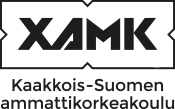Event management (5 cr)
Code: MR00AF16-3004
General information
Enrollment
15.08.2019 - 30.08.2019
Timing
01.08.2019 - 31.12.2019
Number of ECTS credits allocated
5 op
Virtual portion
3 op
RDI portion
2 op
Mode of delivery
40 % Contact teaching, 60 % Distance learning
Campus
Mikkeli Campus
Teaching languages
- English
Seats
0 - 25
Degree programmes
- Degree Programme in Tourism and Service Business
Teachers
- Jaakko Pitkänen
Teacher in charge
Jaakko Pitkänen
Groups
-
MRMI19SD
-
MRMI18KP
Location and time
A plan of the event and all discussions could be done by the student online. The event itself and final peer evaluation must be implemented in Mikkeli.
Course in event management is assessed in:
class presentations
essays
problem-solving tasks
case studies
consultancy plans
fieldwork
Materials
Material provided by the teacher
Teaching methods
Scheduled track:
The purpose of this course is to enable the students to acquire a general knowledge about the Event management and to become familiar with management techniques and strategies required for successful planning, promotion, implementation and evaluation of special events.
This course brings together the theoretical and practical applications of event planning. Students are required to plan, implement and conduct an analysis of an actual event. This course provides a synthesis of planning, execution and post-event analysis. Such an event may be a benefit, arts and design industry event, entertainment event, trade show or an event in the fields of hospitality, marketing and advertising, or sports.
Independent track:
After completion of this course a student will:
- identify types of events
- articulate values, mission, and vision of event management
- know the structural aspects of launching parties, marketing and non-profit events
- know the basic techniques and processes of planning and executing an event from beginning to end
- understand a variety of marketing strategies including publicity and promotions as it applies to event execution
- demonstrate enhanced research, planning, organizational and decision making skills
- develop event planning competencies through case studies analysis, class team work and group presentations
- improve skills in written and oral communication, group work
Blended track:
A plan of the event and all discussions could be done by the student online. The event itself and final peer evaluation must be implemented in Mikkeli.
Course in event management is assessed in:
class presentations
essays
problem-solving tasks
case studies
consultancy plans
fieldwork
International connections
The connections with local business community and international relations are applied within suitable measures and according to students' own interests.
Completion alternatives
After completion of this course a student will:
- identify types of events
- articulate values, mission, and vision of event management
- know the structural aspects of launching parties, marketing and non-profit events
- know the basic techniques and processes of planning and executing an event from beginning to end
- understand a variety of marketing strategies including publicity and promotions as it applies to event execution
- demonstrate enhanced research, planning, organizational and decision making skills
- develop event planning competencies through case studies analysis, class team work and group presentations
- improve skills in written and oral communication, group work
Student workload
27h/ects
Evaluation scale
1-5
Assessment methods and criteria
The final grade will be based on students' active participation in discussions in groups. Peer evaluation will be used.
Students will be divided into small discussion groups at the beginning of the term, and topics for presentation will be assigned to each of group members.
Assessment criteria, satisfactory (1-2)
Student's graduation-level know-how and skills
a. use professional vocabulary and concepts in different situations
b. limit and justify the use of information sources
c. carry out unfamiliar interrelated tasksfluently
d. work together with customers, users and target groups according to the re-quirements of the situation.
e. apply models, methods, software and techniquesof the professional field and justify their use
f. work in teams in a goal-oriented way
g. apply ethical principles of the professional field in different situations
Assessment criteria, good (3-4)
Student's graduation-level know-how and skills
a. use professional vocabulary and concepts in an expert way in different situations
b. evaluate information sourcescritically
c. work as team members in working life expert duties and identifyand describe the problems of the professional field
d. evaluate operations in customer, user and target group situations
e. choose appropriate models, methods, software and techniques according to the purpose and justify these choices
f. promote teams’ goal-oriented operation
g. apply critically theethical principles of the professional field in different situations
Assessment criteria, excellent (5)
Student's graduation-level know-how and skills
a. professional vocabulary and concepts extensivelyand proficiently in different situations.
b. justify their information sources in a versatile and critical way
c. work innovatively and independently in working life expertduties and creatively identify and solve the problems of the professional field
d. promote and develop operations in customer, user and target group situations
e. evaluate and develop models, methods, software and techniques
f. manage and develop teamoperations
g. promote the application of ethical principles in unfamiliar situation
